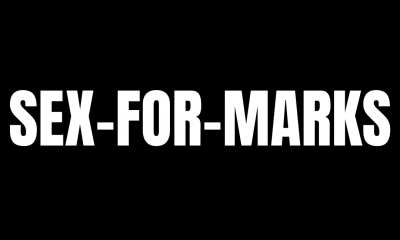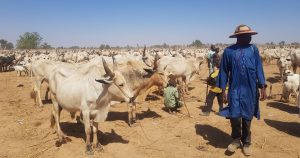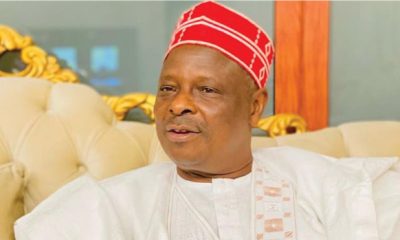Foreign News
UN Chief, others Honour Colleagues Killed in Gaza Conflict

UN Secretary-General António Guterres on Monday led a minute of silence at UN Headquarters in New York in honour of 101 staff killed so far during in Gaza conflict.
According to UN, the number is the largest killed during a conflict in the 78-year history of the organisation.
The fallen colleagues worked for the UN agency that assists Palestine refugees, (UNRWA), providing life-saving aid to Gaza’s 2.
2 million people, amid constant bombardment over the past month and a complete siege of the enclave.They were school principals, teachers, health workers, including a gynaecologist, engineers, support staff and a psychologist.
The New Agency of Nigeria (NAN) reports that Guterres led the minute silence at the Economic and Social Council (ECOSOC) Chamber at the UN headquarters in memory of the departed.
He stood before UN Resident Coordinators from around the world, who are meeting this week, flanked by Deputy Secretary-General Amina Mohammed and the President of the UN General Assembly, Dennis Francis.
“Today, the family observed a moment of silence to mourn and honour our colleagues killed in Gaza. Since the start of this conflict, more than 100 staff have lost their lives – the highest number of UN aid workers killed in a conflict in such a short time.
“They will never be forgotten,” he said.
The commemoration at the Secretariat began around 7:30 AM, with the UN flag being raised to half-mast – the sole one flying that day.
Normally all the flags of the UN’s 193 Member States and two observer States – Palestine and Vatican City – are raised each weekday morning, and in alphabetical order, then lowered in the afternoon.
The Permanent Observer of the State of Palestine, Riyad Mansour who attended the simple ceremony in front of the Secretariat, said the gesture honoured the deceased UNRWA staff members and all “Palestinian martyrs”, including thousands of children killed in the “barbaric war”.
He stressed the need for an immediate humanitarian ceasefire in Gaza, along with “hundreds of truckloads” of aid, medicine and water.
“And we want to stop the crime against humanity of forced mass transfer…to allow the Palestinian people to stay in the Gaza Strip. It is our homeland.
“We don’t want to live a second Nakba. We want to stay in our homeland and to rebuild the Gaza Strip.”
Mansour also expressed hope for “a political horizon” to end the occupation “so that Palestinian people can live in freedom and dignity in our independent State, with Holy Jerusalem as the capital of our State.”
“UNRWA staff in Gaza appreciate the UN lowering the flag around the world. In Gaza however, we have to keep the UN flag flying high as a sign that we are still standing and serving the people of Gaza,” Tom White, the agency’s Director in the Gaza Strip, said speaking from Rafah.
UN officials and staff at duty stations worldwide observed a minute of silence in memory of their deceased colleagues, while the UN flag was flown at half-mast.
Meanwhile, the UN Staff Union held a ceremony in the Secretariat lobby where the names of the deceased colleagues were read aloud.
“May they rest in eternal power and peace,” First Vice-President Francisco Brito said, surrounded by staff members, some of whom held signs that said ‘responsibility to protect,’ ‘stop the killing,’ ‘protect civilians’ and other appeals.
Speaking in Geneva, Tatiana Valovaya, Director-General of the UN Office in the Swiss city said their deaths represented the highest number of aid workers killed in UN history in such a short time.
“Thousands of our colleagues continue to work under the UN flag in [the] most risky parts of the world. And let’s pay tribute to their activities, to their work, to their devotion,” she said.
The UNRWA staff members “embodied the spirit of the United Nations, standing on the frontlines of conflict zones to provide much-needed humanitarian assistance and support,” said the head of the World Health Organisation (WHO), speaking at its headquarters in Geneva.
“Their unwavering dedication to peace, justice, and the well-being of others serves as a guiding light and a reminder of the importance of our shared mission,” Tedros Ghebreysus told WHO personnel. (NAN)
Foreign News
Trump, Putin to Meet in Coming Days-Kremlin Says

US President Donald Trump and Russian President Vladimir Putin have agreed to meet in the “Coming days”, the Kremlin has said.
It followed Trump saying there was a “good chance” he could meet his Russian and Ukrainian counterparts together in person “Very soon” to discuss ending the war in Ukraine.
Ukrainian President Volodymyr Zelensky indicated support for that idea, while Putin said he was not against meeting Zelensky but he was “Very far” from it happening.
Trump’s deadline for Russia to agree to a ceasefire in Ukraine or face more sweeping sanctions is due to expire on Friday.
A meeting between Trump and Putin would follow US envoy Steve Witkoff holding talks with the Russian president on Wednesday.
Witkoff has travelled to Moscow four times previously, visits followed by optimism from Trump but ultimately no major breakthrough in peace talks.
Speaking on Thursday, Putin said the United Arab Emirates could host his meeting with Trump, potentially as early as next week.
He said he was “very far” from a meeting with Zelensky because “Conditions” had not been met and there was “still a long haul ahead for creation of such conditions”.
Previously, Putin said he would only meet Zelensky during a final phase of negotiations. Kyiv and its Western partners reject Moscow’s demands for ending the war.
Zelensky indicated his support for a summit, acknowledging that various formats of meetings had been discussed – “Two bilateral and one trilateral” – and added that Europe “must be a participant” in any talks.
He wrote on X: “Ukraine is not afraid of meetings and expects the same brave approach from the Russian side.”
When asked at a White House briefing on Wednesday night whether Zelensky and Putin had agreed to a three-way summit, Trump had said there was a “very good prospect”.
Last month, Trump admitted that after all four of Witkoff’s previous visits, Putin had disappointed him after talks had initially led to optimism.
The US President is now striking a more cautious tone, telling reporters on Wednesday: “I don’t call it a breakthrough…we have been working at this for a long time. There are thousands of young people dying… I’m here to get the thing over with.”
On Wednesday, the Kremlin released a vague statement about Witkoff’s visit, calling the discussions “constructive” and noting that both sides had exchanged “signals”.
Zelensky meanwhile said he had spoken to Trump about Witkoff’s visit, with European leaders also on the call.
The Ukrainian president has been warning that Russia would only make serious moves towards peace if it began to run out of money.
Expectations are muted for a settlement by Friday – when Trump’s deadline expires – and Russia has continued its large-scale air attacks on Ukraine despite the US threat of sanctions.
As pressure builds, Trump on Wednesday signed an executive order imposing a 25% tariff on Indian imports over its continued purchase of Russian oil
Before taking office in January, Trump said he would be able to end the war between Russia and Ukraine in a day. The conflict has raged on and his rhetoric towards Moscow has since hardened.
Three rounds of talks between Ukraine and Russia in Istanbul have failed to bring the war closer to an end, three-and-a-half years after Moscow launched its full-invasion.
Moscow’s military and political preconditions for peace remain unacceptable to Kyiv and to its Western partners.
Russian demands include Ukraine becoming a neutral state, dramatically reducing its military and abandoning its Nato aspirations.
It also wants Ukrainian military withdrawal from its four partly occupied regions in the south-east, and the demobilisation of its soldiers.
Russia also demands international recognition of Ukraine’s Donetsk, Luhansk, Kherson and Zaporizhzhia regions, as well as the annexed Crimea.
Other conditions include a ban on Ukraine’s membership in any military alliances, a limit on the size of the Ukrainian army, Russian as an official language, and the lifting of international sanctions on Russia.
The Kremlin has also repeatedly turned down Kyiv’s requests for a meeting between Zelensky and Putin.
Meanwhile, the US approved $200m (£150m) in additional military aid to Ukraine on Tuesday, including support for drone production.
Foreign News
US Seeks $15,000 for Visa Applicants Deposit from Two African Countries

The US has required citizens from Malawi and Zambia to pay a $15,000 (£11,300) deposit for a tourist or business visa, according to the US state department.
The 12-month pilot programme aims to curb visa overstays or where screening and vetting information is considered deficient according to a notice published by the state department.
It was said that citizens of other countries than Malawi and Zambia may soon also need to pay a similar deposit, which will be returned at the end of their visit to the US.
The US administration has taken several steps to further President Trump’s agenda of stemming illegal immigration.
Trump signed an executive order on the first day of his second term to this effect, and the state department noticed published on Tuesday, says: “Aliens applying for visas as temporary visitors for business or pleasure (B-1/B-2) and who are nationals of countries identified by the Department as having high visa overstay rates, where screening and vetting information is deemed deficient, or offering Citizenship by Investment, if the alien obtained citizenship with no residency requirement, may be subject to the pilot program.
“Consular officers may require covered non-immigrant visa applicants to post a bond of up to $15,000 as a condition of visa issuance, as determined by the consular officers.” Figures published in 2023 by the US department of Homeland Security show that about 14% of visitors from Malawi overstay their visas, compared to 11% of Zambian visitors.
Other countries with high overstay rates include Haiti (31%), Myanmar (27%) and Yemen (20%).
Zambia Foreign Minister Mulambo Haimbe had said the government was “engaging our counterparts to get a full understanding of the implications and what can be done, if anything, to address the underlying issues”.
Since coming to office in January, Trump has signed orders to roll back humanitarian programmes for migrants from certain countries who are already in the US. He has also banned foreign nationals from 12 countries from travelling to the US, and imposed partial restrictions on another seven.
His administration has revoked visas for hundreds of international students and detained several others on college campuses across the US, often without any warning or recourse for appeals.
The state department has said it is targeting those who were involved in activities that “run counter” to US national interests.
Many of those targeted have participated in some form of pro-Palestinian activity.
But there have been other cases where cancellations appear to be connected to those with some sort of criminal record, or legal infractions like driving over the speed limit, immigration lawyers have said.
Foreign News
Ghana Raises Cocoa Prices to $5,040 Per tonne

Ghana on Monday increased the producer price of cocoa by more than 60 percent ahead of the 2025-26 season, a move expected to put pressure on top cocoa-producing rivals like the Ivory Coast.
The move could also raise global cocoa costs even further, at a time when supply chains are already tightening due to climate shocks and ageing farms.
Finance Minister Cassiel Ato Forson said the rate paid to farmers will rise from $3,100 to $5,040 per tonne, a 62.
58-percent increase.“The cocoa farmer remains a critical pillar of our economy, and this government is committed to ensuring they benefit from the gains we are making,” the minister said at a news conference in the capital, Accra.
Ghana, the world’s second-largest cocoa producer, typically sets its prices ahead of the Ivory Coast, which leads global production.
The Ivorian government is currently paying farmers 2,200 CFA francs per kilogramme, about $3,900 per tonne.
The substantial increase in Ghana is in line with a campaign promise by President John Mahama, elected in December, to raise cocoa farmers’ share of export earnings to at least 70 percent of the Free-On-Board (FOB) value — the price of cocoa at the point it is loaded onto a ship for export.
The FOB price has shot up in recent years, with the current $7,200 price reflecting a blend of earlier contracts signed at $2,600 per tonne during the 2023-24 season and forward sales forecasts for 2025-26, Forson said.
Farmers were previously only receiving 63.9 percent of the FOB price, or $3,100 of the $4,850 FOB value, in the 2024-25 season.
Forson said the revised price also accounts for improved macroeconomic conditions, including a strengthening cedi and easing inflation.
Ghana’s price controls are meant to stabilise earnings for farmers, especially during price dips, but critics say they have lagged behind market highs, especially in recent years, as global prices have spiked.
In response, some farmers have joined the country’s gold rush, selling off land to informal miners — many of whom have left environmental destruction in their wake, further squeezing production.
Getting fair prices for farmers — at the bottom of cocoa’s global value chain — has long been a goal of both activists and West African governments, with fingers pointed at both private firms and buyers as well as official corruption.
Forson also announced the reintroduction of the government’s free cocoa fertiliser programme, which includes the distribution of fertilisers, insecticides, fungicides, spraying machines, and flower inducers to increase yields and income.












